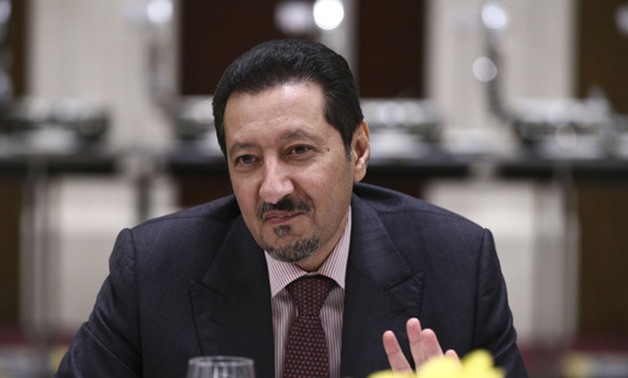
Walid bin Abdulkarim Al-Khuraiji – File photo
CAIRO – 28 June 2017: Saudi Ambassador to Turkey, Walid bin Abdulkarim Al-Khuraiji said Wednesday that his government hoped that Ankara’s government remains neutral regarding the Qatari-Arab dispute, and does not interfere in the political situation to the favor of any party.
“The foreign powers should know that any kind of interference in the Arab-Qatari dispute is not going to solve it, in contrast, the situation is going to become more complicated” Al-Khuraiji said in statements to daily Sabah newspaper.
Two Turkey military units have arrived in Qatar since June 18 “for military exercise” according to the Qatari state-owned news agency. The troops included about one thousand soldiers, and the Turkish air force is expected to join them as well.
Some media outlets considered sending the Turkish troops to Qatar as a serious challenge to the Arab countries, and that Ankara is taking Doha’s side.
“We hoped Ankara remained neutral regarding the dispute, and to preserve its good relations with the other Arab and Gulf States; however any military escalation, Qatar should incur its consequences.” Al-Khuraiji said.
On June 23, Saudi Arabia, the United Arab Emirates (UAE), Egypt and Bahrain sent a list of 13 demands to the Qatari government, including closing Al Jazeera television, reducing ties with Iran and closing of a Turkish military base in Qatar.
On Friday the Turkey Defense Minister Fikri Işık said that he did not see the Arab formal demand regarding the closing of the Turkish military base is Qatar, “the base is training the Qatari soldiers and it exists for the security of Qatar and the region,” Işık added.
Qatar’s relations with several Arab and Gulf States have been strained since May 24. At that time the Qatari state-run news agency reported Sheikh Tamim Al Thani’s statements regarding Gulf foreign policy with Iran, describing it as “unwise.”
On Monday June 5, Egypt, Saudi Arabia, the UAE, Bahrain, Libya and Yemen decided to cut all diplomatic ties with Qatar for its “continuous support for terrorism,” closing their airspace and seaports to Qatari transportation.
On Tuesday June 6, Kuwaiti Emir Sabah Al-Ahmad started a tour that included Saudi Arabia, the UAE and Qatar in an attempt to mediate between the three countries.
No official details were published about the results of the meetings; however, according to Bahraini Foreign Minister Khalid bin Ahmed Al-Khalifa’s statements to Saudi newspaper Makkah on June 8, Kuwait’s attempts at reconciliation had “failed.”

Comments
Leave a Comment